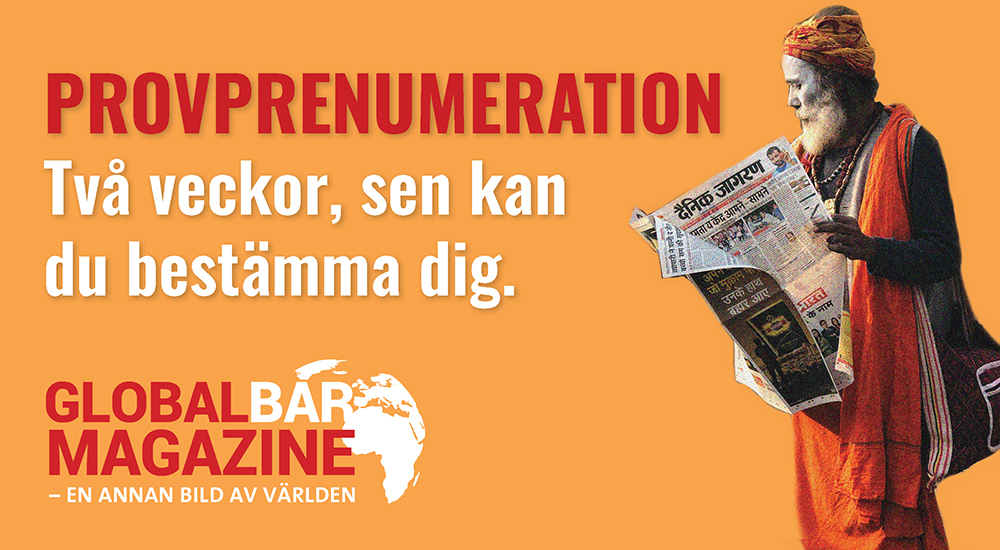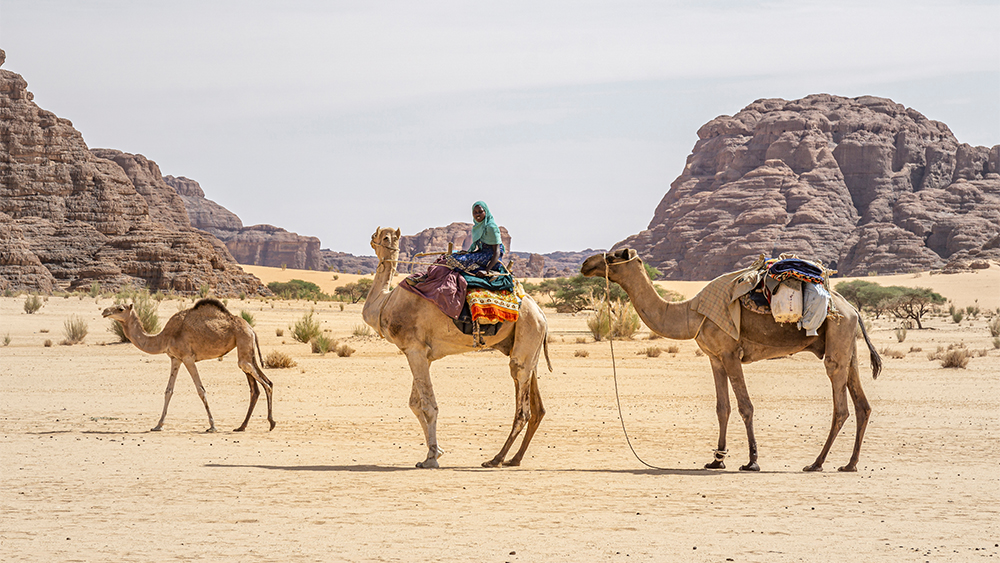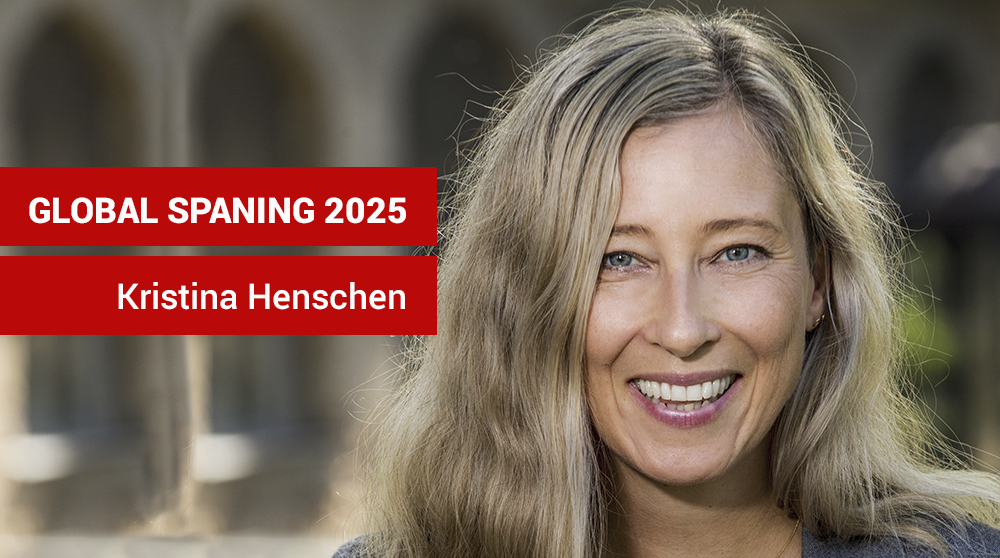One year ago the long-term ruler of Chad, president Idriss Déby Itno, was killed under unexplained circumstances while visiting his troops asa Chadian rebel group advanced towards the capital. His adopted son Mahamat Idriss Déby, then took power. But despite talks it seem unlikely that the Military Transitional Council and Déby are willing to leave power, writes Helga Dickow from University of Freiburg.
The opinions expressed in the article are those of the writer.
Many Chadians are looking to the capital of Qatar where almost 50 political-military movements and representatives of the Chadian transitional government have been engaged in talks since early March.
Qatar offered to facilitate negotiations, the so-called pre-dialogue, between the transitional government and the different rebel movements to give all parties the opportunity to participate.
The meeting’s outcome could decide the country’s future. It will determine whether Chad will be peaceful or once again be torn apart by armed conflicts over its resources.
One year ago the president of Chad, Idriss Déby Itno, died. The long-term ruler was killed under unexplained circumstances while visiting his troops as the Chadian rebel group Front pour l’Alternance et la Concorde au Tchad advanced towards the capital, N’Djamena.
The Transitional Military Council, led by his adopted son Mahamat Idriss Déby, then took power. The Zaghawa, the ethnic group of the old and new presidents, occupy the majority of posts in the council.
According to the constitution, the president of parliament should have acted as interim leader and called for new elections. A transitional constitution now grants Mahamat Déby even more power than his autocratic father ever had.
He appointed the prime minister who had already served under his father, a transitional government, a transitional parliament and committees to take care of the transition.
He promised reconciliation, inclusive dialogue, a referendum to decide on a new constitution and elections within 18 months. This transition period could be extended once.
But despite the talks, what’s happened in the last 12 months makes it seem unlikely that the Military Transitional Council and Déby are willing to leave power. They would rather consolidate their rule, relying on the former power elite and the military. Liberalisation is only a cosmetic move. The country’s resources will continue to benefit the few, at the expense of its citizens.
In the grip of the Zaghawa
Unlike the cases of Mali or Guinea, which had military coups in 2020 and 2021, no international sanctions against the unconstitutional transfer of power were imposed on Chad.
Rather, French president Emmanuel Macron provided Mahamat Déby with international recognition as his father’s successor through his presence at Déby’s funeral ceremonies. Chad and France are closely intertwined militarily. The country is a strong military partner of France in the fight against jihadism in the Sahel.
The Chadian population was initially relieved that power changed without violence. The rebels withdrew and there were no clashes between different factions within the National Army. But large parts of civil society immediately spoke out against the establishment of a family rule and against French support for the Transitional Military Council.
Leading the way was Wakit Tamma –- a broad alliance supported by unions, student movements and the emerging party Les Transformateurs. This alliance had rallied in the run-up to the presidential elections in February 2021 to prevent Idriss Déby’s sixth mandate.
As under the father’s rule, security forces brutally put down demonstrations against the new leaders. In the first protest on 27 April 2021, many people were injured and killed. Wakit Tamma demands that the members of the Transitional Military Council, and above all Déby, are not allowed to stand in the next elections.
The military council does allow demonstrations now. However, they are allotted secluded routes so that they don’t attract attention. State television simply ignores them.
The supporters of the Transitional Military Council include those who benefited from Idriss Déby’s 30 years of rule. Supported by the security forces and the secret service and based on oil revenue, he built up an elaborate patronage system.
Members of his family, of his ethnic group the Zaghawa, and of the ruling party Mouvement du Patriotique du Salut were able to amass enormous fortunes as a reward for their loyalty – in one of the poorest countries in the world.
The largest share of the Zaghawas’ wealth is said to be outside the country. Chad is classified as one of the most corrupt countries.
The political opposition, already weak and fragmented under Déby senior, has slipped into insignificance since his death.

The few prominent representatives have been appointed ministers or to well-paid posts in the transitional committees. There are only a few former opposition members in the transitional parliament. Most are close to the former ruling party.
Then there are the political-military movements. Advances by various rebel movements and coalitions repeatedly threatened Déby’s rule. They range from political opponents to former profiteers of his regime and disgraced family members.
For some, the different rebellions since 1990 were desperate attempts to end authoritarian rule by force – for others, a business model. Like opposition members, some rebel leaders were rewarded, at least in the short term, for their surrender with well-paid ministerial or other posts in the Déby era.
Some could still pose a military threat to the country’s stability.
Rough road ahead
This is why the pre-dialogue is now taking place in Doha. The inclusive dialogue, with representatives of the whole society, is scheduled for 10 May 2022 in Chad.
However, both sides request guarantees. The transitional government demands a non-aggression pact and the disarmament of the rebels. The rebel leaders insist on a reform of the army, which is considered an extension of the clan, an amnesty, and on the release of all arrested fighters.
Initial reports from Doha suggest that the Transitional Military Council is continuing its policy of divide and conquer. For one thing, a surprisingly large number of rebel leaders has been invited. The key movements could be outvoted in any decision.
In addition, increasing differences within the movements can be observed. At present, it is uncertain if the transition calendar will be met at all and if elections will take place this year.
Having visited recently, my observation is that there is no sign of political will for real change. Instead, restrictive measures have been put in place.
And the demand of civil society and Wakit Tamma has not yet been answered. Transitional president Déby reacted evasively to the question of whether he would stand in future elections.
But even if he were to withdraw, some of his brothers have already founded their own parties. It is obvious: the Zaghawa want to continue their grip on Chad, no matter what the president’s first name is.
Helga Dickow
Senior Researcher at the Arnold Bergstraesser Institut, Freiburg Germany, University of Freiburg
This article is republished from The Conversation under a Creative Commons license. Read the original article here.


